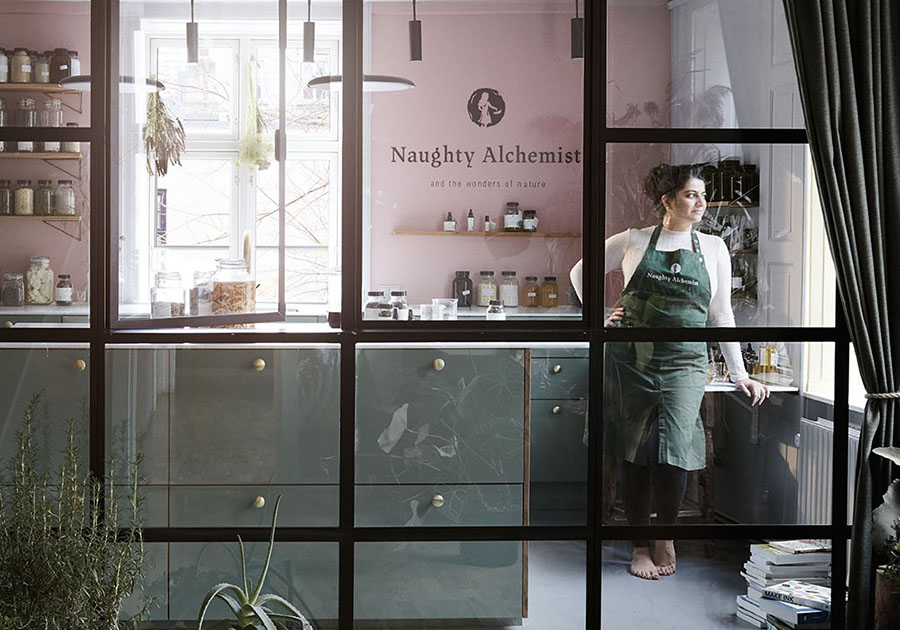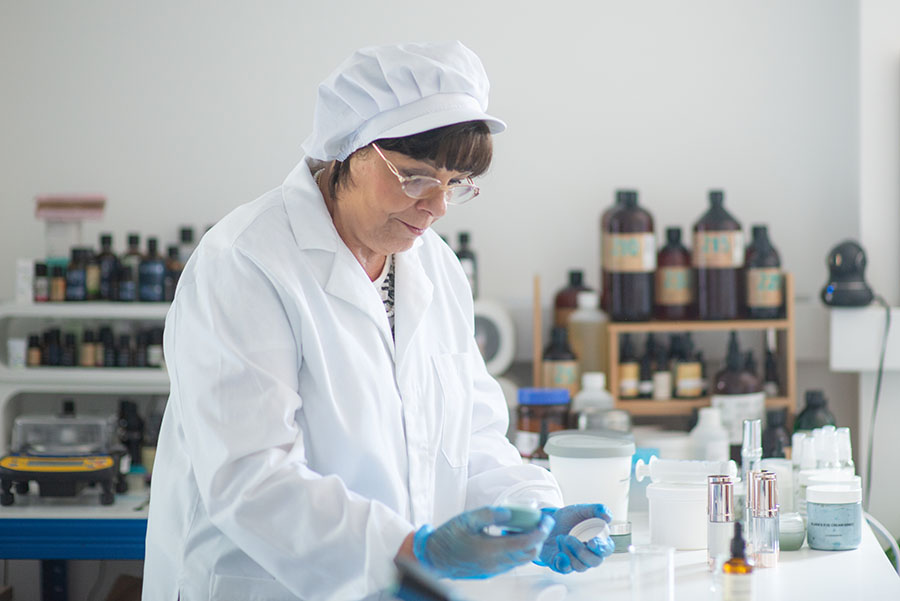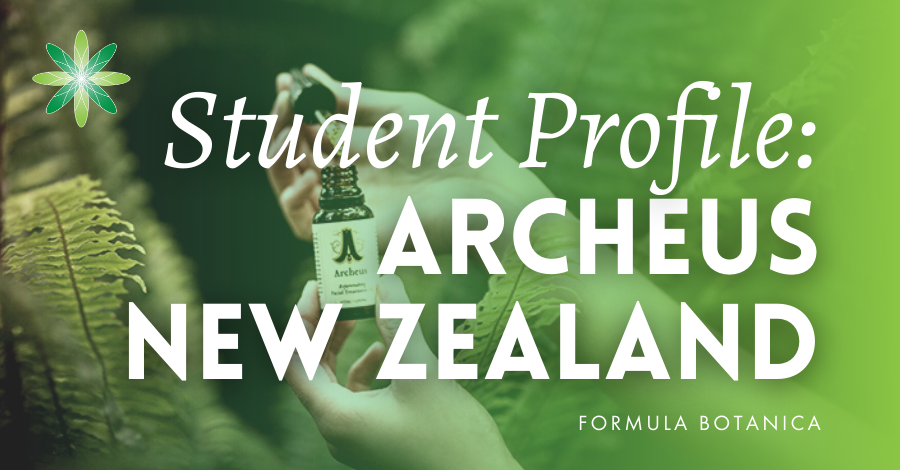From beginner formulators to our graduates who’ve launched brands, the Formula Botanica community is defying the formal, traditional way of doing things in the cosmetics industry. And nowhere is this more evident than in their home lab spaces.
When we put a call out to our community to share a behind-the-scenes look at just where they formulate, we were amazed at how enterprising our volunteers were and at the variety of their labs.
We’ve students now turned skincare entrepreneurs who once formulated on the move. One student used to formulate out of a suitcase as she traveled for work staying in hotels. A couple of our graduates started their brand together operating from a mobile camper van crossing the wilds of Canada. We’ve students who converted home gyms and spare bedrooms and one who invested retirement funds into setting up a professional, cosmetics’ manufacturing lab.
This is the joy of being an indie formulator; your passion and persistence can get you going. And barriers to entry can be low. You can set up a lab space almost anywhere at home and there is only a small list of essential equipment you need when starting out.
We’ve been led to believe that cosmetics need to be made in sophisticated, commercial manufacturing labs, but mostly that isn’t the case as you’ll see in the film above.
In it, you’ll go behind the scenes into the labs of some of our students and graduates. From India to the Republic of Ireland, and from the USA to the UK, indie formulators across the world are inspiring each other, innovating and changing the way cosmetics are made.
Of course, you will need to understand and follow good manufacturing practice (GMP) even if making cosmetics for yourself and family and friends. If you decide to manufacture cosmetics to sell, then you must ensure your lab space complies with your country or region’s regulations. Some countries do not permit the commercial manufacture of cosmetics at home.
But, the good news is that you can start learning to formulate from virtually any space as our tips in these articles show:
I’m a formulator and here’s what you need to know to become one too
Top 6 lab tools every new formulator needs
Beginner’s guide to setting up a home lab – behind the scenes video in some of our tutors’ home labs.
How to set up your artisan lab
How to start a cosmetics business at home
Do you need a license to sell skincare products?
All our students and graduates in our film started out small scale with just the essentials before adding to their lab tools or moving into larger lab spaces. Two of our volunteers are just moving into new commercial spaces as we write. All have kindly shared their top tips and recommendations.
Top lab tips from our featured students and graduates
Stella Nisreen Kanaan – Denmark
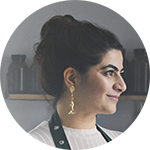
Lab space: I built my lab on the first floor above my beauty salon, Beauty Avenue, which I’ve run for the past 20 years.
I love my lab because…it is a first-of-a-kind ‘open apothecary lab’ in Scandinavia where my guests at Beauty Avenue can look inside the lab and see me experimenting and producing all the lovely Naughty Alchemist products. I wanted my lab to be a beautiful, inspirational space for me to work in. I also wanted people to feel inspired by the beautiful herbs and decor. Transparency is key, which is why we have a big glass wall.
Cost to set up: It was not easy to set up a professional production lab, which is what I wanted to do from the start, because I needed to know the exact local requirements for cosmetic production in Denmark, and there wasn’t a manual for that. I had to figure out good manufacturing practice (GMP) and get it approved. Because I wanted my lab space to be beautiful and professional it was a bit pricey – especially when it came to finding the right equipment to help me scale up production. This was not easy for a small-sized lab. It took around 1.5 years before the lab was ready and to find the right building contractors who could start when I needed them to.
My most essential lab tool: My scales. Having really good scales that work efficiently and accurately is essential. I have several scales that can measure from 0.01 up to 12kg. We use them every single day for everything we do.
My top lab space tip: First, set about figuring out if you want a lab solely for experimenting or for commercial production as well. If the lab is also going to be used for production also, you need to comply with regulations and GMP for things like storing and handling materials and also require exceptional hygiene.
Find Stella at: The Naughty Alchemist, on Instagram @NaughtyAlchemist and at her beauty salon Beauty Avenue.
Patricia Ambroziak – California, USA
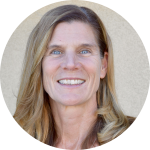
Studying: the Advanced Diploma in Organic Cosmetic Science, the Diploma in Organic Haircare Formulation, Diploma in Beauty Brand Business Management and the Certificate in Cosmetic Stability Testing.
Lab space: My lab is in my home. My husband helped me turn a spare room into a dedicated lab space. The room was our exercise room with a treadmill, but as we’re in California, I’m able to get moving outside!
I love my lab because… after having had to formulate in our kitchen and in a shared space in a business, having a dedicated space of my very own makes it easier to maintain GMP compliance when I manufacture and store products for my clients. I also love having a space where I can escape to indulge in the creativity of formulation.
Cost to set up: The space was easy to set up. I found a sturdy workbench as well as restaurant and lab equipment online. Then I added a small inexpensive table and chair. Although I added to my equipment over time, I was able to get the space up and running within a week or so.
My most essential lab tool: My scales, followed by an immersion blender.
My top lab space tip: Reach out to other formulators for advice on equipment and using space. It’s amazing what fantastic ideas people come up with on where to find equipment and how to best utilise their spaces for formulating.
Find Patricia at: Aromatherapy by Tricia Ambroziak
Nikolai Krivolutski – Republic of Ireland

Lab space: In my house; it used to be a home office space but now it’s my dictated lab space.
I love my lab because…it is a restful blue colour with lots of natural light. It provides me with lots of inspiration and is a serene space I can spend the whole day in.
Cost to set up: My partner helped me transform the old office space. We did it on a budget and everything ourselves. Most of what is in the lab I sourced from IKEA. Everything is modular so it can be easily moved around if I need to add to the space or configure it in different ways.
My most essential lab tool: My pH meter is my most essential item; I use it nearly every day. And of course, my formulation journal in which I record absolutely everything.
My top lab space tip: Make sure the space reflects who you are and is a place where you can happily spend hours formulating and researching. It doesn’t have to be boring and clinical looking if that’s not you, so put some colour in it that makes you happy. But do make sure you can easily and thoroughly clean everything from floor to walls not forgetting all those nooks and crannies.
Find Nikolai on Instagram: @Nikolailoveshair
Klara Valko – UK
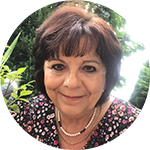
Lab space: rented space, 60m2.
I love my lab because…it’s private, quiet and clean. I went to work in a lab for 40 years, but what a difference it is to have your own lab, and to be experimenting with your own ideas.
Cost to set up: It took me two years to fully equip it. (Note: as a career scientist, Klara has exacting demands for her equipment.)
My most essential lab tool: The most expensive and for me indispensable piece of equipment is the laminar box that ensures that no dust or any other contamination from the air gets into my products. I have an excellent balance that weighs up to 5000g with 0.01g precision. The mixer, emulsifier, balances and small centrifuge for stability testing were not expensive. I bought many items on eBay or Amazon.
My top lab space tip: Look for a clean, well-ventilated and dust-free space with good washing-up facilities. You will need cold storage place for the ingredients and room for jars, containers, labels and boxes for your products.
Find Klara at: Klara Skincare
Jason Besendorfer – USA

Lab space: A home study lab plus a new commercial manufacturing facility.
I love my lab because…I love having a lab at home for quiet study and experimentation. I love my new manufacturing facility because it has all the big fun equipment!
Cost to set up: I’ve been setting up over the past 7 years and it’s been crazy going! Scaling up to go commercial was very expensive but worth it; I move into my new manufacturing/commercial facility in January 2022.
My most essential lab tool: The controlled heating and cooling system fitted with emulsion paddles. Some of my equipment I actually developed myself, so I’ve some insider trade secrets about equipment I won’t be divulging!
My top lab space tip: Make a ‘wants’ and ‘needs’ list and work towards one really good piece of equipment at a time. Don’t waste time and money on lesser quality equipment early on as it won’t last.
Find Jason Besendorfer: Royal Jelly Tattoo and Skincare
Shelly Ann Winokur – USA

Lab space: A spare room in my home.
I love my lab because…it is a dedicated place where I can work and focus.
Cost to set up: It took about two years to get to this state. I purchased and upgraded equipment over time. It was a real help when I realised early on that I could use industrial kitchen equipment instead of lab equipment.
My most essential lab tool: My lab scale mixer. It helps me experiment in small batches quickly.
My top lab space tip: Just start out formulating on a table and then gradually move up your own dedicated room. Then, may be to your own building one day. [As we publish this post, Shelly Ann is in the process of making that move to a new commercial space as her brand has gone from strength to strength.]
Find Shelly Ann: Kiss Kiss Goodnight website and on Instagram @kisskissgoodnight.
Usha Verma – India

Lab space: My lab is at home and is a separate room at the back of the house, where nobody enters especially my kids!
I love my lab because… I can keep all my many herbs and botanical ingredients organised there. Everyday I am there making something new. The space allows me to formulate in peace; it’s almost a kind of therapy space.
My most essential lab tool: My beakers, hand blender and pH meter.
My top lab space tip: Everyone should own their lab space as it’s so motivating and inspirational a space in which to do experiments and formulations.
Leave us a comment
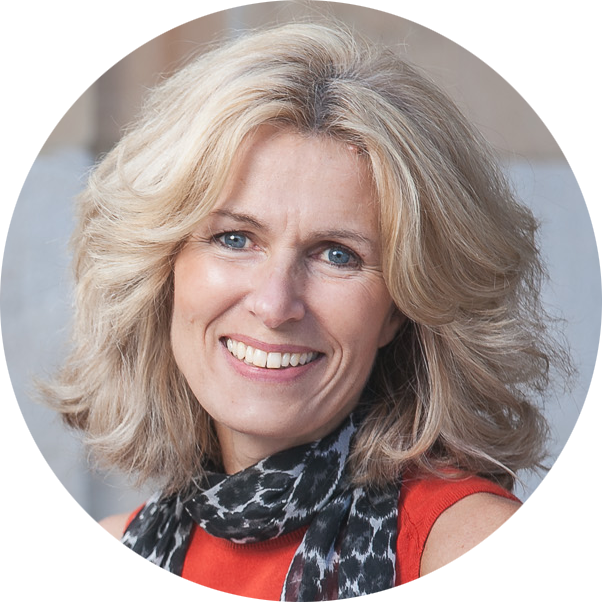
Liz was Formula Botanica’s Content Coordinator between August 2020-2024. Liz worked as a professional blogger, journalist and site developer for many years and was also part of the Formula Botanica student community. Read more about the Formula Botanica Team.

